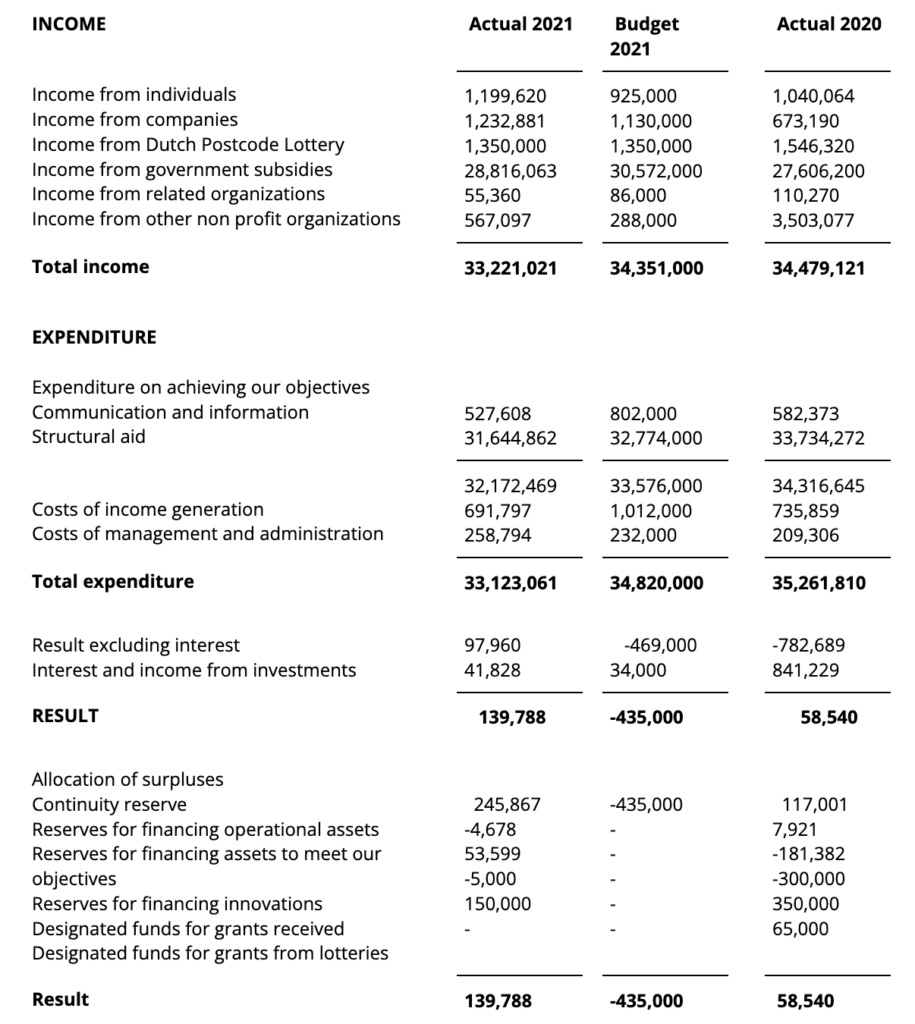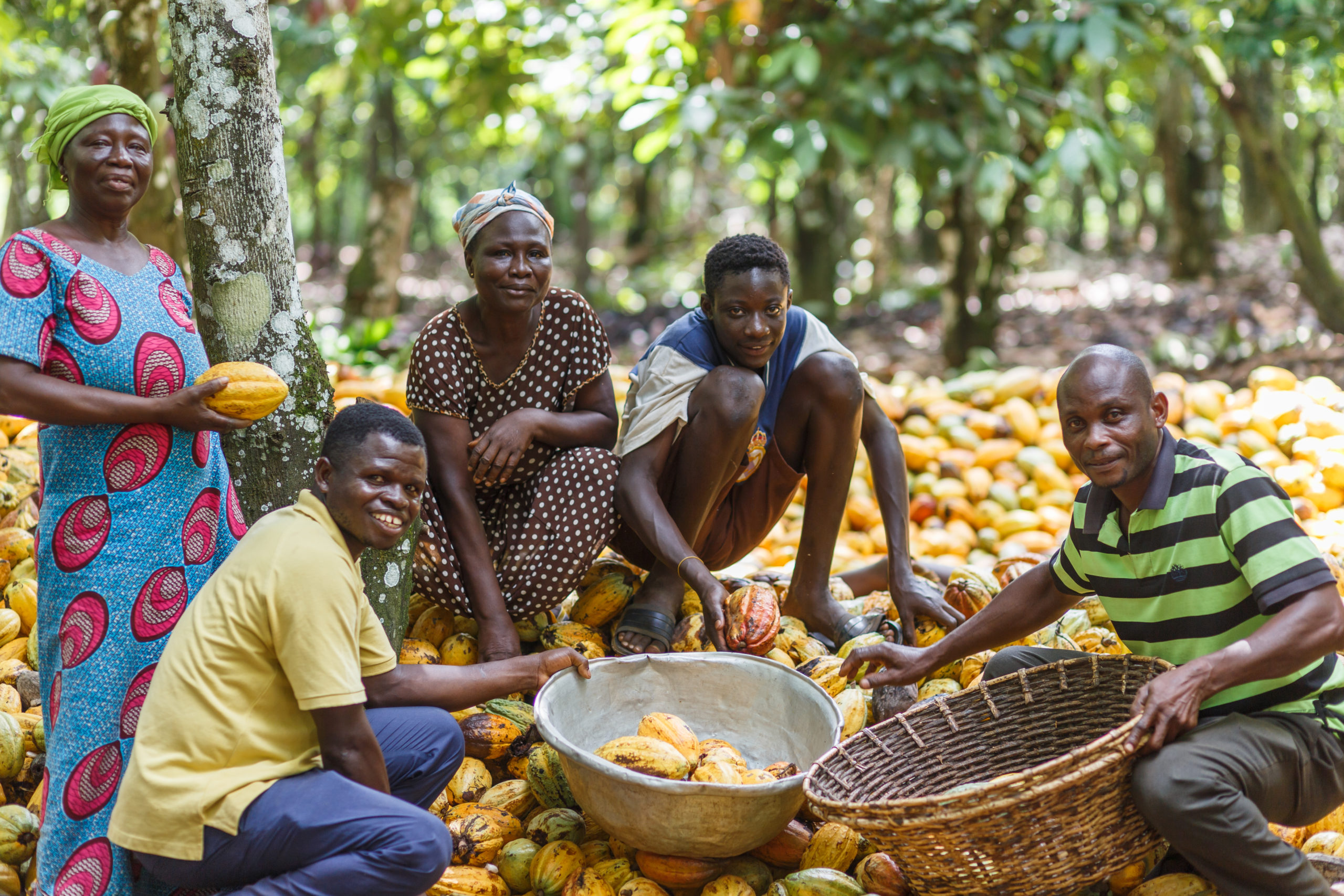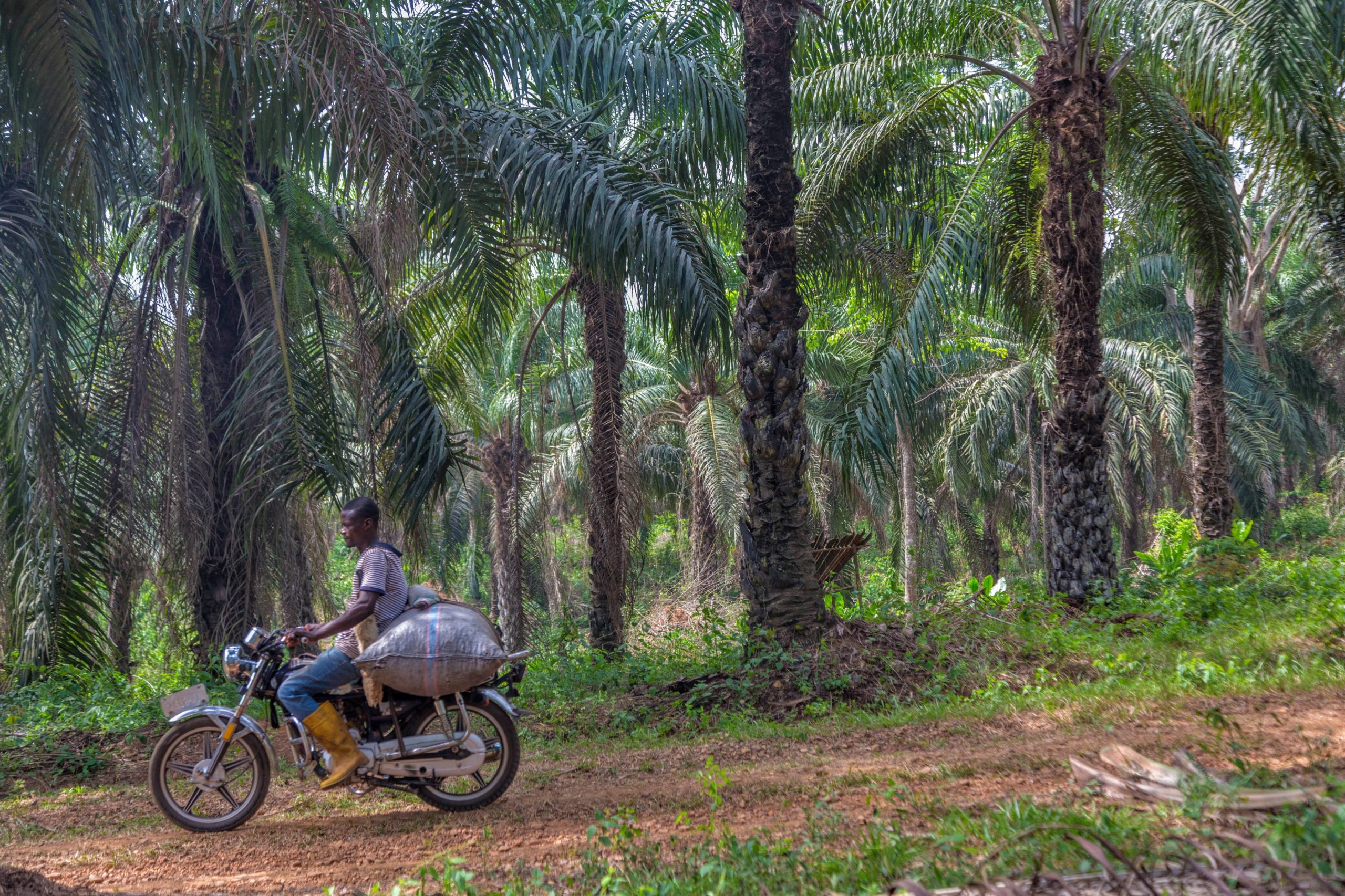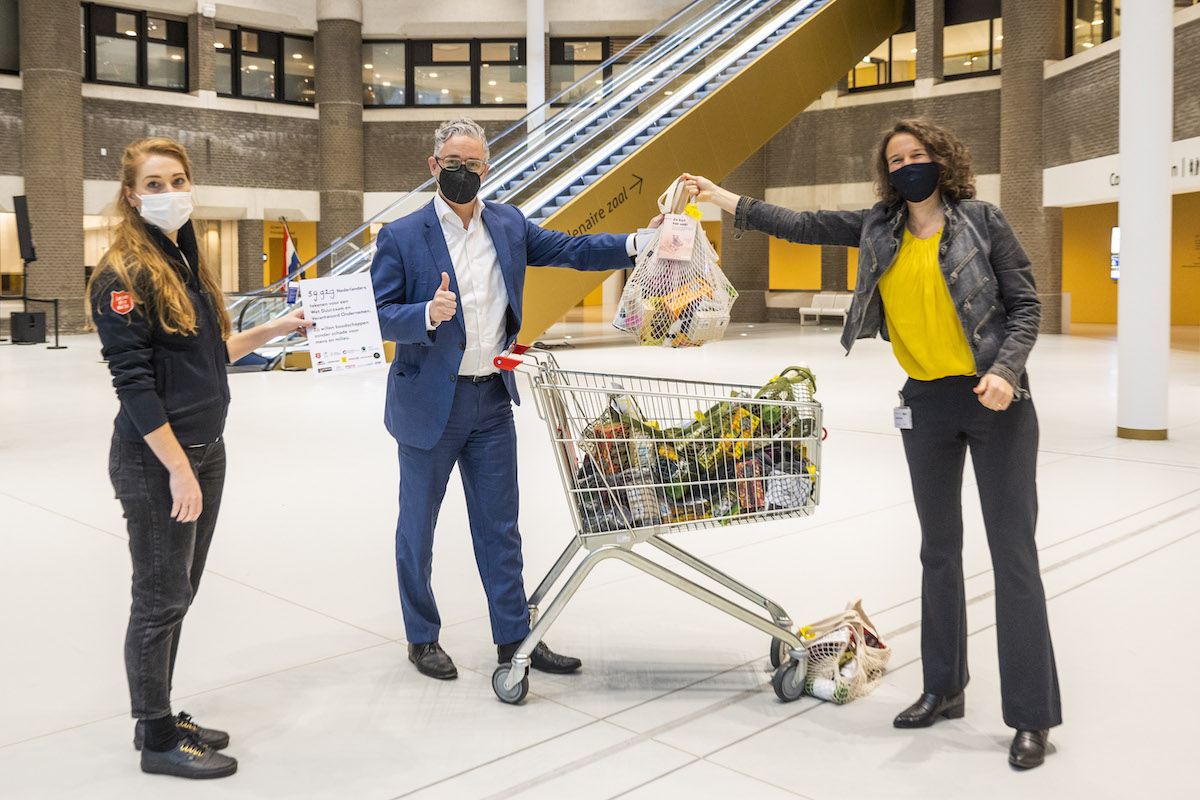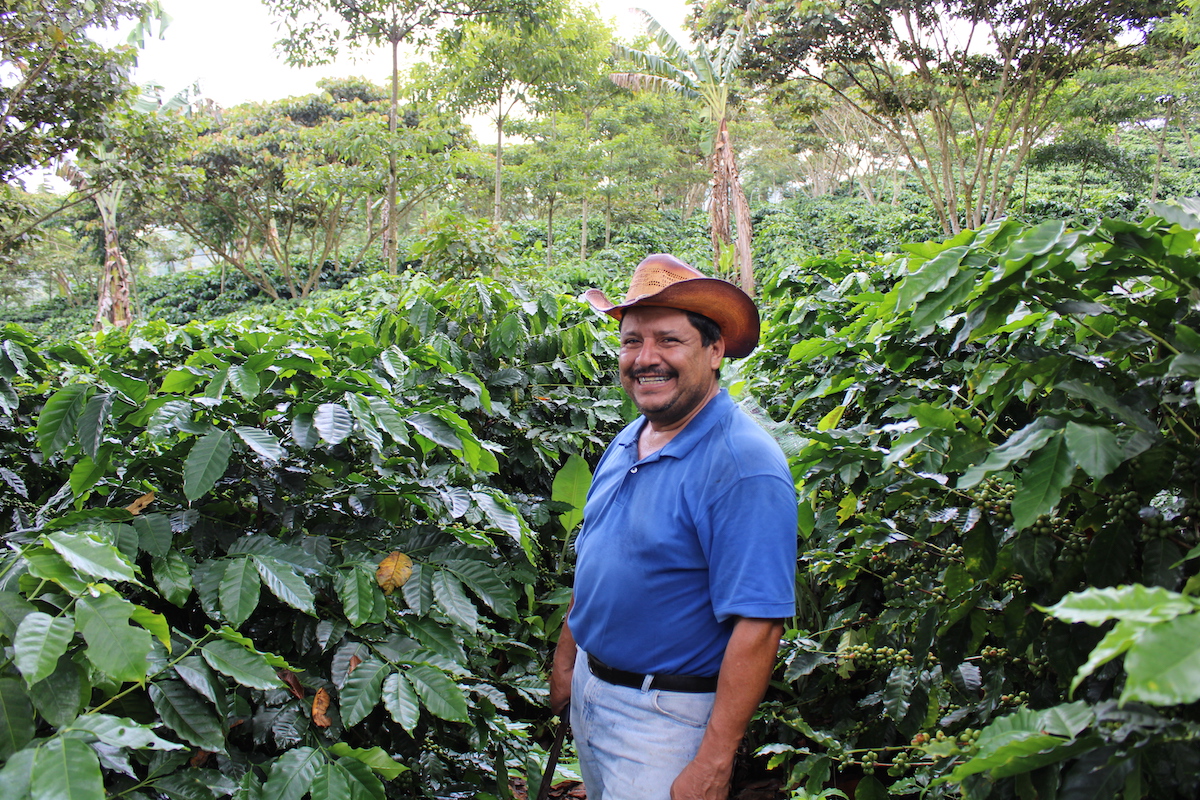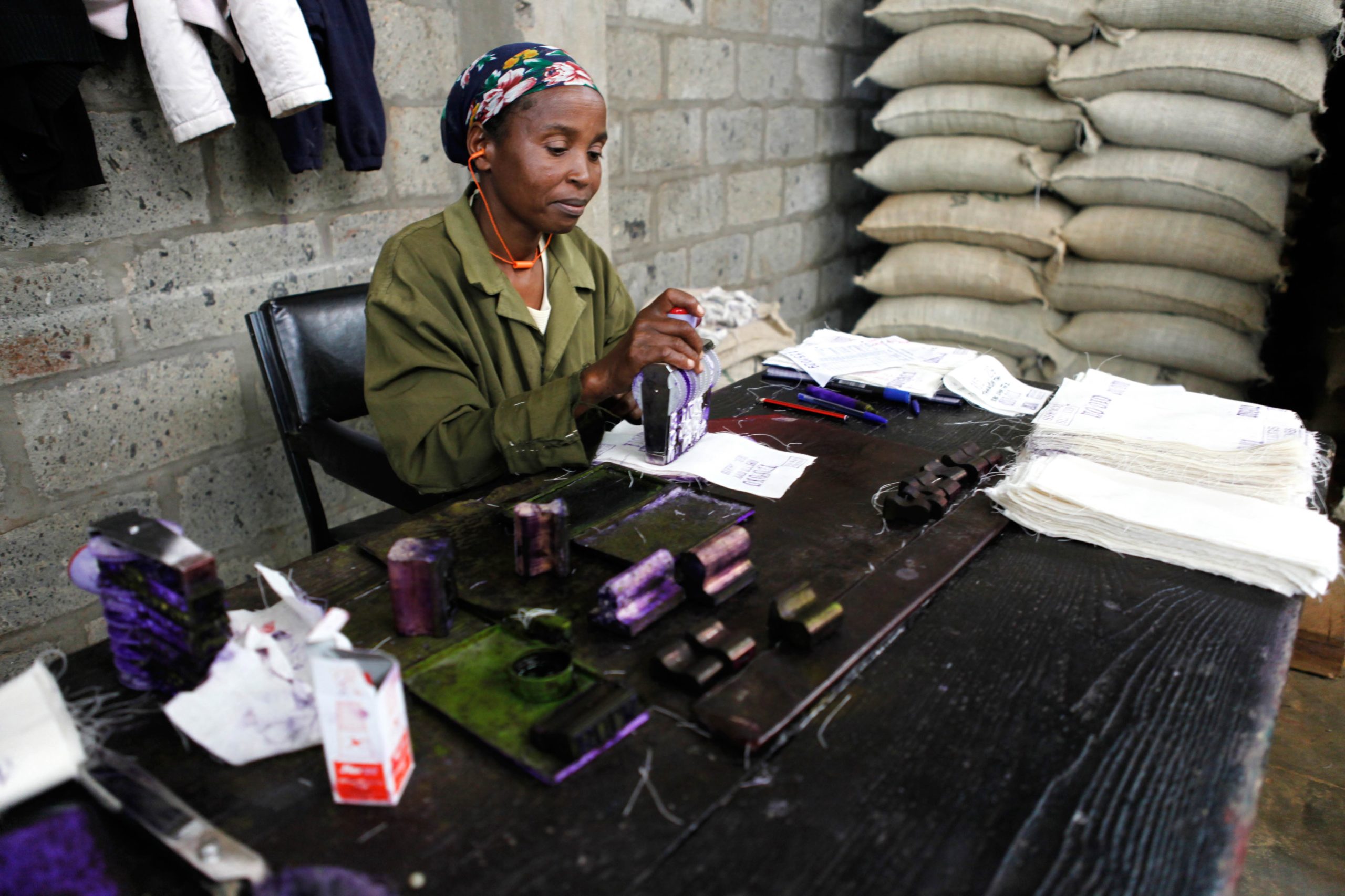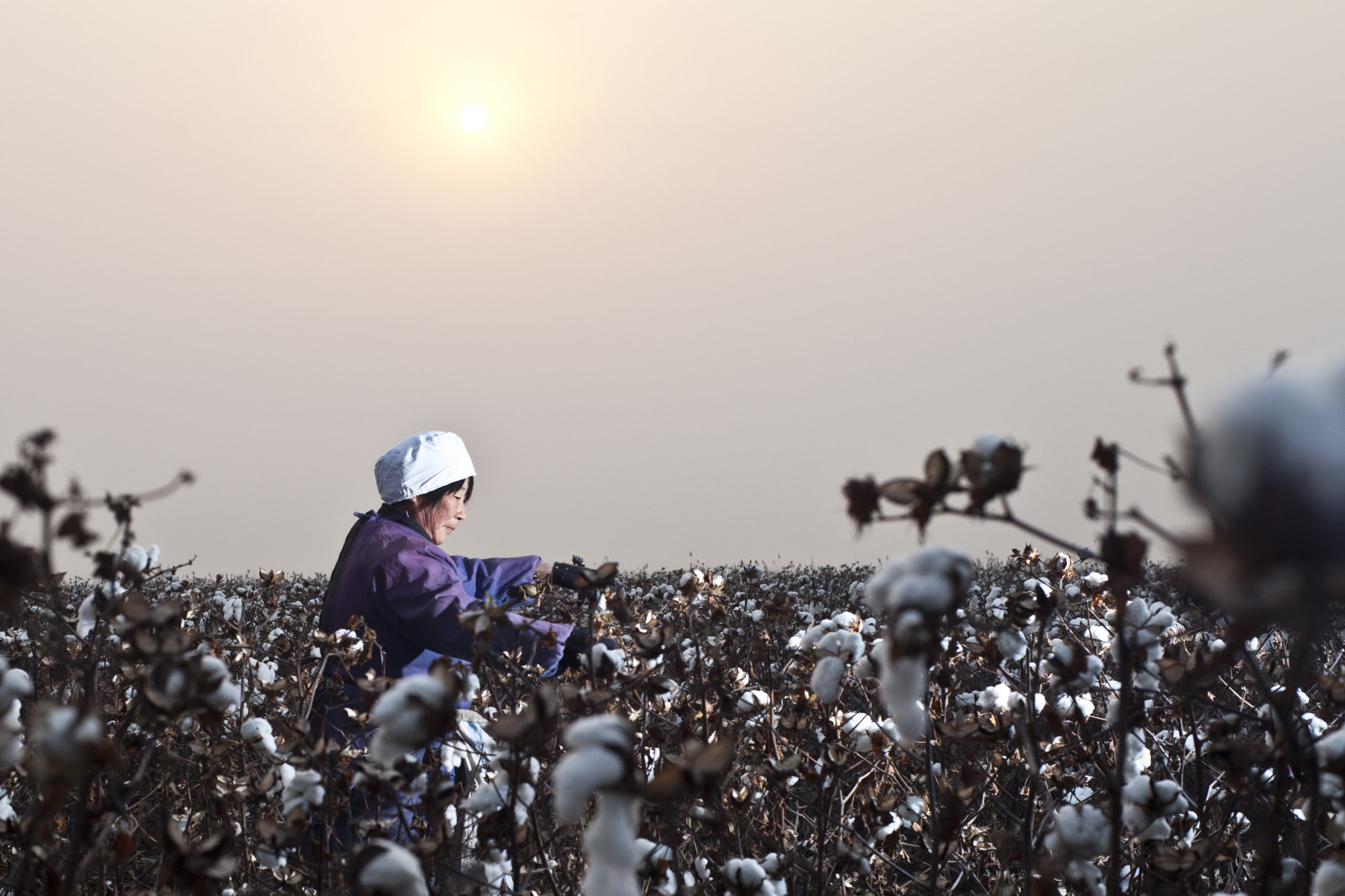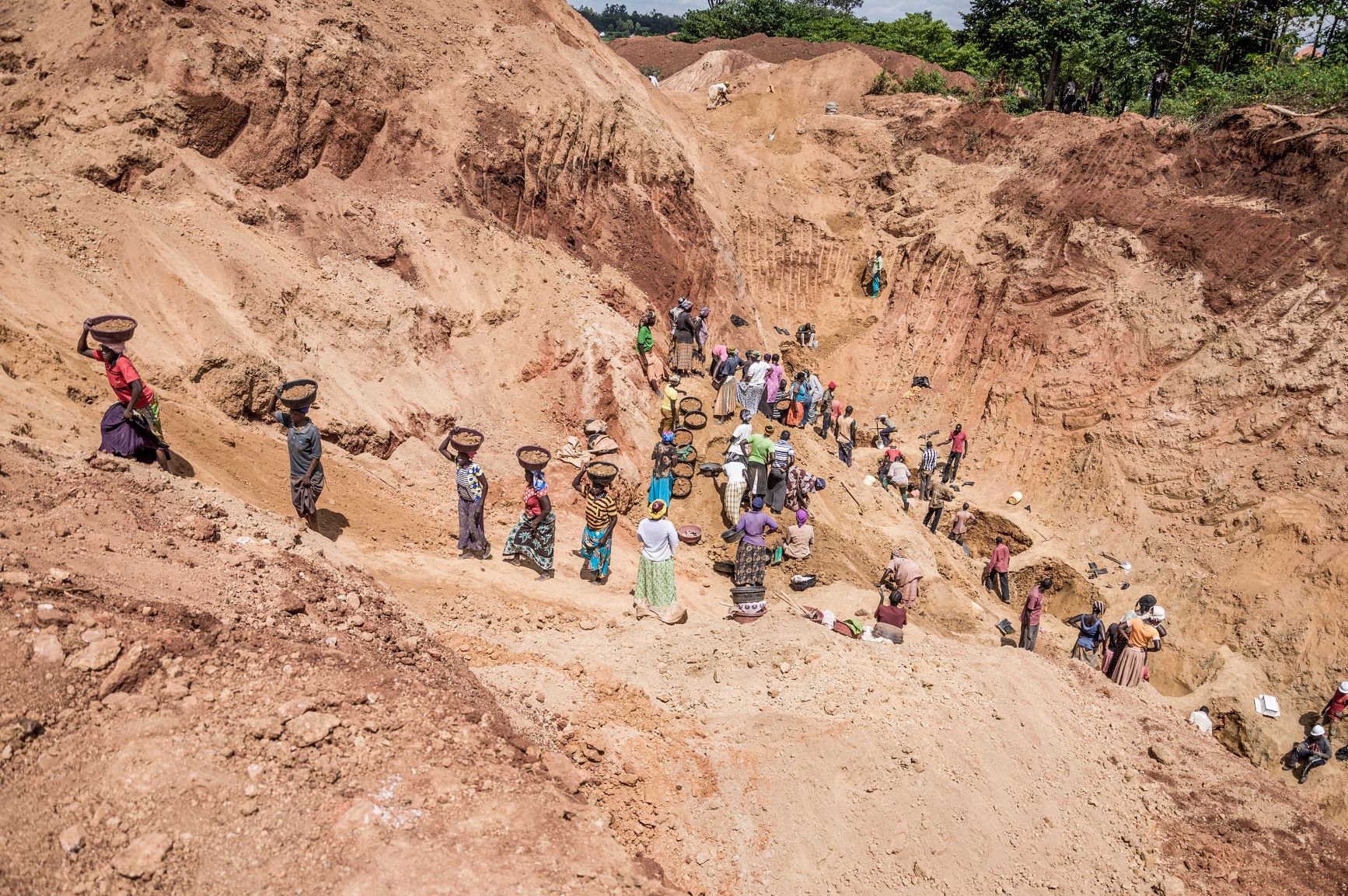Highlights
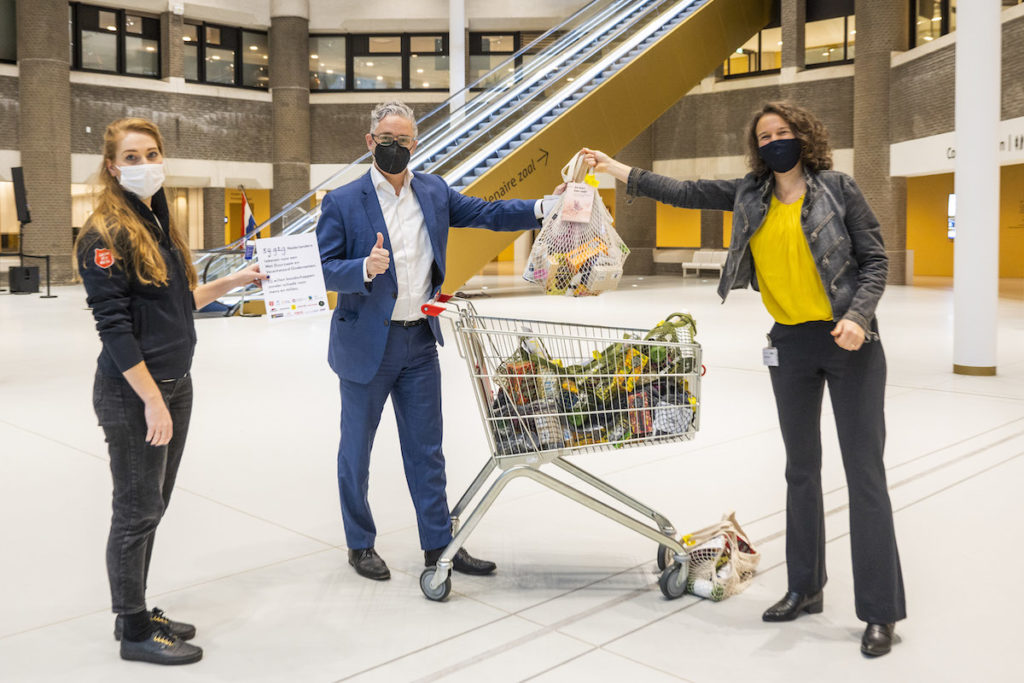
A deep dive
Markets paying for sustainability
We need systemic change. A new economy that works for the poor and the planet. In which we pay for natural resource management, for living wages, and inclusivity. Solidaridad Europe’s main goal is to make European market actors pay for sustainability.
Supporting producer-inclusive European legislation
Solidaridad is advocating for the adoption of human rights and environmental legislation that will have a positive impact on the environment, smallholder farmers, workers and miners. In 2021 the European Union took several important steps in the process of adopting legislation, and several of our recommendations on smallholder inclusiveness, and on partnerships between the EU and producing countries were included.
The debate in Europe on corporate social responsibility is at an important crossroads: the possibility of holding companies internationally accountable for negative impacts in their supply chains has never been closer since the adoption of the UN Guiding Principles on Business and Human Rights (UNGPs) and the fifth revision of the OECD Guidelines for Multinational Enterprises in 2011. These guidelines require companies to exercise due diligence in their business operations.
Solidaridad is in favor of moving beyond voluntary sustainability initiatives only, and welcomes mandatory measures for corporations as part of a smart mix of measures to address issues in international supply chains. At the same time, we are concerned that such regulation might restrict EU market access for smallholder farmers, workers and miners if they are unable to meet the new requirements. We also see the need to adopt strong complementary measures in partnership with producing countries.
In November 2021 the European Commission proposed a legislative text on deforestation-free products. This legislation includes a standard to prohibit commodities from entering the EU if they are not free from deforestation. Without support, smallholder farmers will struggle to comply with the standards imposed by the regulation, ultimately resulting in losing access to the EU market. In the course of 2021, we continued to raise awareness of this risk and we proposed recommendations to policymakers. We teamed up with other CSOs and like-minded companies that are active in the EU lobby to leverage our influence and amplify our messages. This resulted in a legislative text published in November, which includes some first concrete provisions regarding the impact on smallholders. Several of our recommendations were included in the proposal. In particular, it includes an obligation to conduct a general review of the impact of the regulation on smallholder farmers. It also requires the EU to have partnerships with producing countries in an effort to support smallholder farmers.
In March 2021 the European Parliament issued a request to the European Commission to put together a legislative proposal on corporate due diligence. Since 2020 we have advocated for the adoption of legislation in Europe to address human rights violations and environmental concerns outside of Europe. Based on our long experience we know that the lack of a living income and living wage for producers is a root cause of many human rights violations and environmental issues. So far, the corporate lobby has generally resisted recognition of living income as a human right that should be covered by EU legislation. We have worked together with like-minded NGOs around the globe in presenting the briefing Legislating for Impact to underline this message.
We also worked on changing this in collaboration with our partners in the VOICE network. In this collective effort, five cocoa companies co-signed the joint position paper stating that the legislation should also contribute to achieving a living income for cocoa farmers, thus recognizing living income as an essential means of establishing a sustainable cocoa sector.
Corporate engagement
2021 was not an easy year to close new partnerships, including securing corporate financial contributions. We focused on expanding and deepening our strategic partnerships with Henkel, Syngenta and Stahl, and on the implementation of 13 new public private partnerships that were approved in 2020 (eight) and 2021 (five). We worked with 44 partners altogether on implementing sustainable policies and practices and on inclusive business models.
Highlights of our successes include the following:
- We began a new Farm2Bar project with Henkel. With a substantial additional budget from Henkel, we will build a fully traceable supply chain for the production of soap under their brand DIAL. Smallholder palm oil farmers are directly included and will benefit.
- With Kering we continued the women empowerment project in mining communities in Ghana, supporting women in starting and strengthening their businesses.
- We worked on designing a sourcing model with a route to market for artisanal and small-scale gold mining (ASM) and its integration in the formal international market. We pitched this to several companies who are members of the Dutch Gold Covenant and collected four letters of intent to support this new sourcing model.
- We collaborated with many small Dutch startups, bringing innovative technical solutions to our field operations, such as Cooloo (they developed a circular concept to use leather waste streams); Salt Doctors (testing saline agriculture in Kenya); and Solynta (testing potato seeds among smallholder farmers in Mozambique). Although the results of these pilots have been positive, it has been and still is challenging to find funding to scale these promising interventions.
- We started a new project and now cover 80% of the leather clusters in India. Together with Stahl we involved other major suppliers of chemicals to create more sustainable practices in the leather industry in India and Bangladesh.
- Solidaridad is proud of our joint venture with Lendahand and Cordaid: the crowdfunding platform PlusPlus. PlusPlus supports smallholders by providing access to finance to agri and food SMEs. In the course of 2021, 18 agri and food entrepreneurs were funded by almost 500 crowdfunders. Our donor P4G approved another grant for scaling of the operation, with a focus on marketing, efficiency and data analysis.
Most retailers and brands in the fashion industry saw their results come under pressure, and this slowed down their sustainability agenda. We were involved in two new Public Private Partnerships geared at improving social and environmental challenges in the textiles supply chains. One of these is with Hunkemöller, Zeeman, America Today and Tricorp, focusing on environmental improvements, and the other one with Prenatal, Just Brands and Micro Fashion, working on improved due diligence.
Activating citizens to raise their voices
One of our successes in 2021 was the collaborative citizen campaign that demanded the Dutch government to put in place Dutch legislation requiring companies to respect human rights and the environment in their value chains. This campaign resulted in 40,000 signatures offered collectively by a group of Civil Society Organizations to the Dutch parliament.
Solidaridad encouraged citizens to demand change from governments and brands. Throughout the year, we executed seven campaigns in the Netherlands that reached a total of 6.3 million people, while motivating more than 16,000 people to take action.
Together with the organizations in the IDVO coalition we developed and executed a campaign that collected a total of 40,000 signatures that were offered to the Dutch Parliament. The campaign supported a joint lobby by the coalition to create a new Dutch law on corporate social responsibility based on UN and OECD principles for Human Rights and Environmental Due Diligence.
On Black Friday we organized a ‘protest’ campaign in the Netherlands to draw the public’s attention to the vulnerable position of the makers of our clothes. It involved 30 mannequins that symbolized the ‘stripped-down’ textile workers. They were holding signs with slogans about wrongdoing in the textile industry. The protest was linked to research that we commissioned in the Netherlands. We reached 2.1 million people with this action and collected almost 2,000 signatures for EU legislation to tackle the problems addressed. Press engagement included national radio, trade magazines and regional newspapers. Interestingly, the Dutch research was also picked up in Germany, facilitated by the colleagues in our German office.
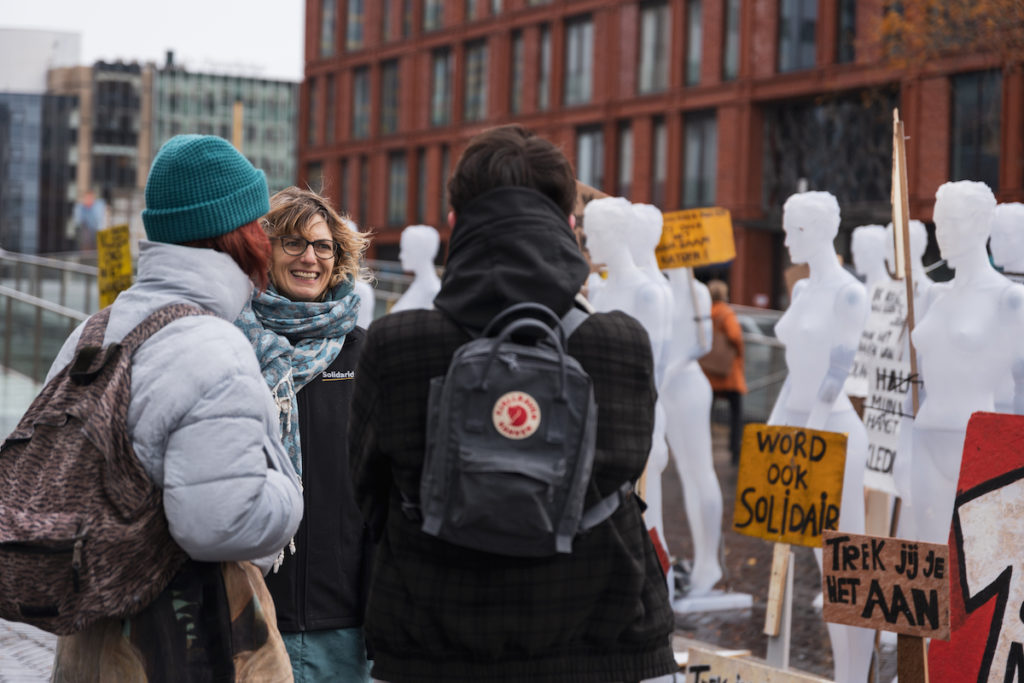
Apart from putting pressure on the public sector via citizens campaigns, the Communications & Campaigning team also called upon the private sector to start paying for sustainability. We did so through the promotion of the Cocoa Barometer published at the end of 2020, and the Coffee Barometer at the beginning of 2021. These publications had a potential reach of 1.1 billion unique views.
Supporting our network in accessing funding from donors directly
In 2021 Solidaridad kept relationships with donor partners strong despite operating in complex realities and supported the Solidaridad Network in accessing funding from donors directly.
Progress has been mixed mainly due to Covid-19. We have not had a good year on our main objective (growing and diversifying income). Despite celebrating some successes (RVO, Partnership for Green Growth), Covid-19 realities made it difficult to build relationships, particularly with new donors. They tended to stick to their existing partners, not opening up to new organizations like Solidaridad. In response to this we significantly invested in relations with European partner NGOs who have partnerships with these donors and explored how Solidaridad could add value to these partnerships. We also concluded that building partnerships with new donors, such as in Germany, takes time. Meanwhile, one of our key donor targets, the EU, did not issue a Call for Proposals in 2021, and we faced the realities of having a caretaker government in the Netherlands. This meant there were fewer funding opportunities.
With regards to managing partnerships with existing donors, progress was good. The first year of our Power of Voices partnership, supported by the Netherlands Ministry of Foreign Affairs, reaped first results and we kept implementation afloat in many countries. Other successes included: we sailed through a complex EU evaluation for one of our projects in Ethiopia; our Norad-supported programme on avoiding deforestation in South America closed with achieving the large majority of its targets; and we organized a successful high-level event on one of our flagship palm oil programmes during the COP26 in Glasgow.
We celebrated various successes through our support to the fundraising drives of other Solidaridad offices. As a network we were able to anticipate the trend that donors increasingly want to fund NGOs directly in the producing countries. With support from the donor relations team, various contracts were signed by other Solidaridad regions, such as a Danida-funded organic coffee proposal in Kenya (620,000 Euro), a WorldBank Dairy tender in Ethiopia (949,000 USD), and a GIZ/Olam-funded programme on Cotton in West Africa (3M Euro). With regards to climate finance specifically, we got close to winning a 12 million USD contract with the NAMA (Nationally Appropriate Mitigation Action) facility which was turned down due to a last minute change in policy by the donor. Furthermore, we supported approaches by our offices in Colombia, Uganda and Bangladesh to the Dutch Fund for Climate and Development.
In the field of individual fundraising, we managed to secure €1.36 million from individual donors, companies, churches, foundations, and €1.35 million from the Dutch Postcode Lottery.
A catalyst for creating a learning organization
We advised and facilitated the planning, monitoring, evaluation and learning processes in projects, teams and the organization as a whole.
In 2021, team learning plans were introduced in the Europe Regional Expertise Centre, and a new global learning agenda in the Network. This is an indication of more attention to learning and a more strategic direction at the organization. Notably, the ISO auditor also complemented Solidaridad with our strong investment in design and development of knowledge systems to initiate and stimulate innovation.
The dedicated knowledge management and learning team created spaces for learning, reflection sessions after evaluations and joint planning sessions during the Annual Retreat. In order to include external knowledge and perspectives we collaborated with external stakeholders: Wageningen University and Research, Van Hall Larenstein, University of Utrecht, Maastricht University, AidEnvironment and Avance.
We supported, developed and implemented a number of learning processes and products:
- Theories of Change and monitoring frameworks for the successful Dream Fund application to the National Postcode Lottery and for the corporate partnerships with Syngenta and Henkel.
- Mid-term reviews and evaluations for the several larger programmes: NI-SCOPS palm oil Asia and Africa, the FOSEK food security project in East Africa and Bottom-Up a cotton and textiles project in Europe and Ethiopia.
- Project fact sheets to capture results and lessons learnt in 80% of the projects of Solidaridad Europe.
One of the monitoring challenges in our work in Europe is how to capture results in policy influencing and our contribution to it. In 2021, we agreed to pilot a new methodology for that: Outcome Harvesting. This was well received, and will be tested in 2022.
Solidaridad Europe also houses the lead of the Global Expertise Team on Enabling Policy Environment. In its first year the team developed an overall learning plan till 2025, including annual budgets, and five thematic learning plans for each Thematic Learning Group: Fair Value Distribution, Climate and Natural Resource Management, Decent Work, Sustainable Consumption and Gender and Social inclusion. The Thematic Learning Groups aim to develop knowledge, advice on solutions and want to claim thought leadership.
The baseline report for the RECLAIM Sustainability! programme was developed to create a point of reference of the policy situation at the start of the programme. The baseline specifies policies per sector and country and gives a clear picture of which policy improvements are needed in the years to ahead.
A digital Knowledge Hub was created about key learning themes. Furthermore, the briefing for the first Palm Oil Barometer was developed and several research papers including one on citizen activation.
Most Significant Change Stories
Human resources
Solidaridad is an international network organization with a relatively new and culturally diverse staff. Our staff is the key factor for realizing the vision and strategy of Solidaridad. The HR strategy “Growth through Connection” reflects the common HR strategy at the network level.
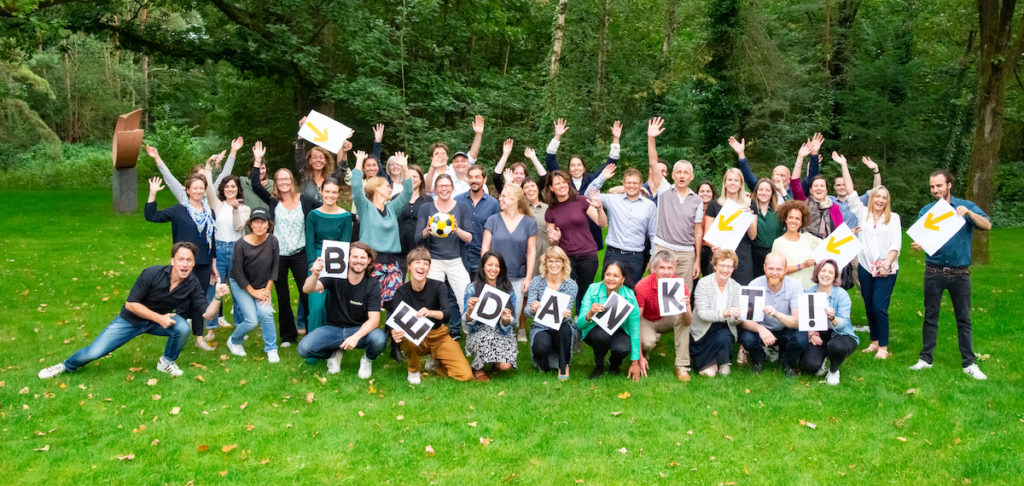
Solidaridad strives to be a learning organization. Learning together also means creating a culture of cooperation, providing and receiving feedback, and allowing each other to learn and improve. In the past year, we have invested in HR to help employees and managers within Solidaridad to prepare, conduct and record discussions about performance, personal growth and improvements. Each year employees are invited by their manager for an individual planning meeting, performance and appraisal evaluations. The Managing Director has a yearly planning, performance and appraisal evaluation with the chair of the Supervisory Board.
By the end of 2021, Solidaridad Europe (Netherlands and Germany) employed 62 people, the same number as in 2020; a total of 53.2 full-time staff is under contract (FTEs). In 2020 this figure was 56.5. Solidaridad has its own salary structure, which is based on job descriptions. The tasks and responsibilities are described per job function. The functions are weighed on the basis of the following four characteristics: knowledge and experience, independence, social skills and risks, responsibility and influence. Solidaridad’s salary policy follows that of the Dutch government. The average gross annual salary per FTE in 2021 was €65,189 (2020: €62,250).
The goal of the diversity policy is that Solidaridad’s staff should reflect the European population wherever possible. Solidaridad in Europe has 45 female and 17 male employees at the end of 2021 (2020: 42 female and 19 male). The average age is 42 years. Six employees left in 2021, and seven new employees joined. The rate of absence due to sickness in 2021 was 2.75% (in 2020: 4.14%). The short absence (less than a week) was 0.6% (2020: 0.5%), medium absence was 0.5% (2020: 0.4%) and long absence (more than six weeks) was 1.6% (2020: 3.1%).
A safe place to work and speak up
An integrity manager is responsible for the integrity system, i.e. developing and implementing tools that provide structural and formal procedures, and supporting a culture in which staff feel safe to work and speak up. The Code of Conduct is discussed during on-boarding and staff meetings to enable moral deliberations which provide meaning to the moral compass of Solidaridad. Staff can approach three Persons of Trust (one in the Netherlands, one in Germany and one contracted externally) to discuss any concern they have and seek counseling and/or support. Three formal reporting channels are available: one internal reporting process and two external channels, of which one is accessible through our website and one is a contracted party providing a public portal for anyone to file a report anonymously at https://www.seehearspeakup.co.uk/.
In 2021 no breach of integrity was reported concerning Solidaridad Europe.
Finance
Analysis of the financial results
The total income in 2021 was EUR 33,221,021 a decrease of EUR 1,258,100 compared to 2020. Income from subsidies increased by EUR 1,209,863 compared to 2020, however, was EUR 1,755,937 lower than budgeted due to postponed spending to 2022. Income from other fundraising decreased by EUR 2,467,963 compared to last year, but was EUR 625,958 higher than budgeted for in 2021.
The total expenditure in 2021 was EUR 33,123,061, which is EUR 2,138,749 lower than in 2020, and EUR 1,696,939 lower than budgeted. Of the total expenditure, EUR 32,172,469 was directly spent on our objectives. This has led to a positive result of EUR 139,788 in the statement of income and expenditure in 2021, where 2020 had a result of EUR 58,540. The result of 2021 is partially affected by the reserves for financing assets and innovations, leading to an addition of EUR 245,867 to the continuity reserve.
The table below shows the financial results for the past five years (in euro). The year 2017 reflects only the results of Solidaridad the Netherlands, from the start of Solidaridad Germany in 2018 these results are included in the following results.
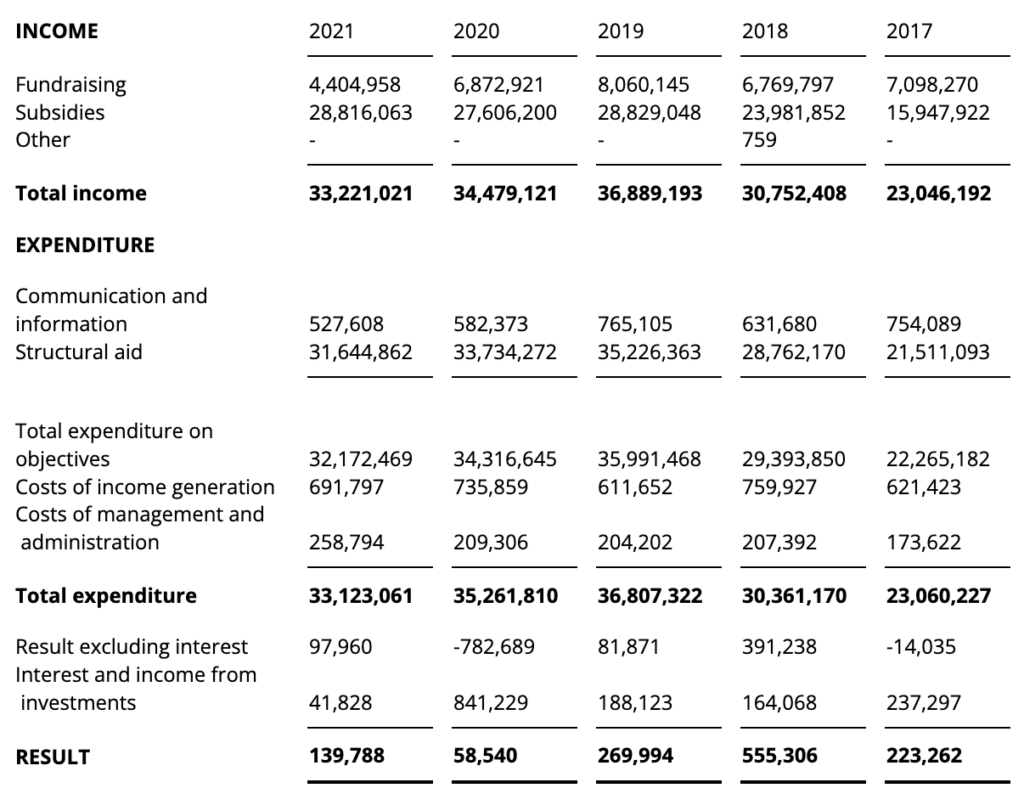
CONSOLIDATED STATEMENT OF INCOME AND EXPENDITURE
(in euro)
